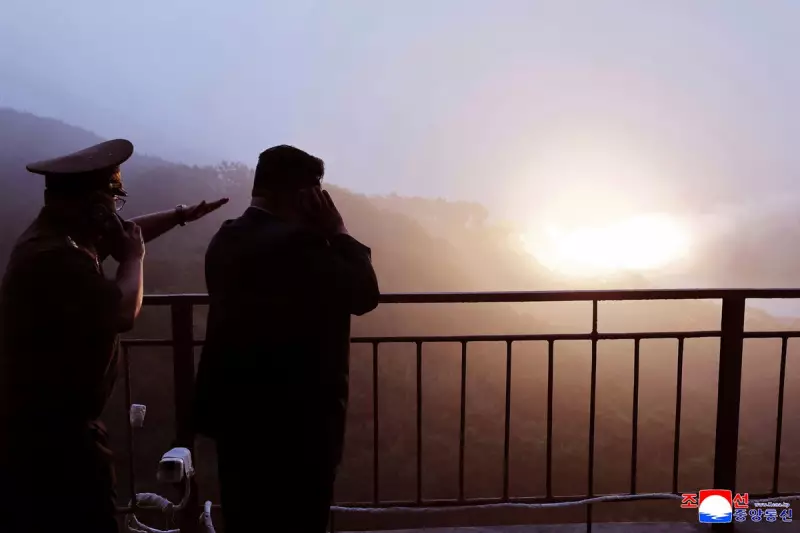
In a significant escalation of military posturing, North Korean leader Kim Jong Un has personally overseen the test of a new 'super-large' warhead, specifically designed for the regime's strategic cruise missiles. The test, reported by the state-run Korean Central News Agency (KCNA), also involved the launch of a new anti-aircraft missile, underscoring Pyongyang's continued focus on weapons development.
The development of this new warhead is intended for the Hwasal-1 Ra-3 and Hwasal-2 Ra-3 strategic cruise missiles—key components of North Korea's growing arsenal. This move is widely interpreted by analysts as a direct challenge to the South Korean government and its allies, further destabilising the fragile security situation on the Korean Peninsula.
Kim's Direct Involvement and Strategic Goals
KCNA's report emphasised Kim Jong Un's hands-on role in the operation, framing the test as a vital step in achieving the nation's five-year defence development plan. The agency claimed the test was a success, achieving its stated goals, though independent verification of these claims remains impossible.
This latest display of military capability is part of a broader pattern of increased weapons testing by the isolated state. North Korea has consistently framed these activities as necessary acts of self-defence against what it perceives as hostile policies from the United States and South Korea.
Regional Reactions and Ongoing Tensions
The provocative test is likely to draw strong condemnation from the international community, particularly from Seoul, Tokyo, and Washington. It comes at a time of heightened anxiety in the region, with observers concerned that North Korea may be preparing for a seventh nuclear test—its first since 2017.
South Korea's military has confirmed it detected the missile launches but is continuing to analyse the specifics of the new warhead technology in collaboration with US intelligence agencies. The consistent advancement of North Korea's weapons programme presents a formidable and ongoing challenge to global non-proliferation efforts and regional stability.






